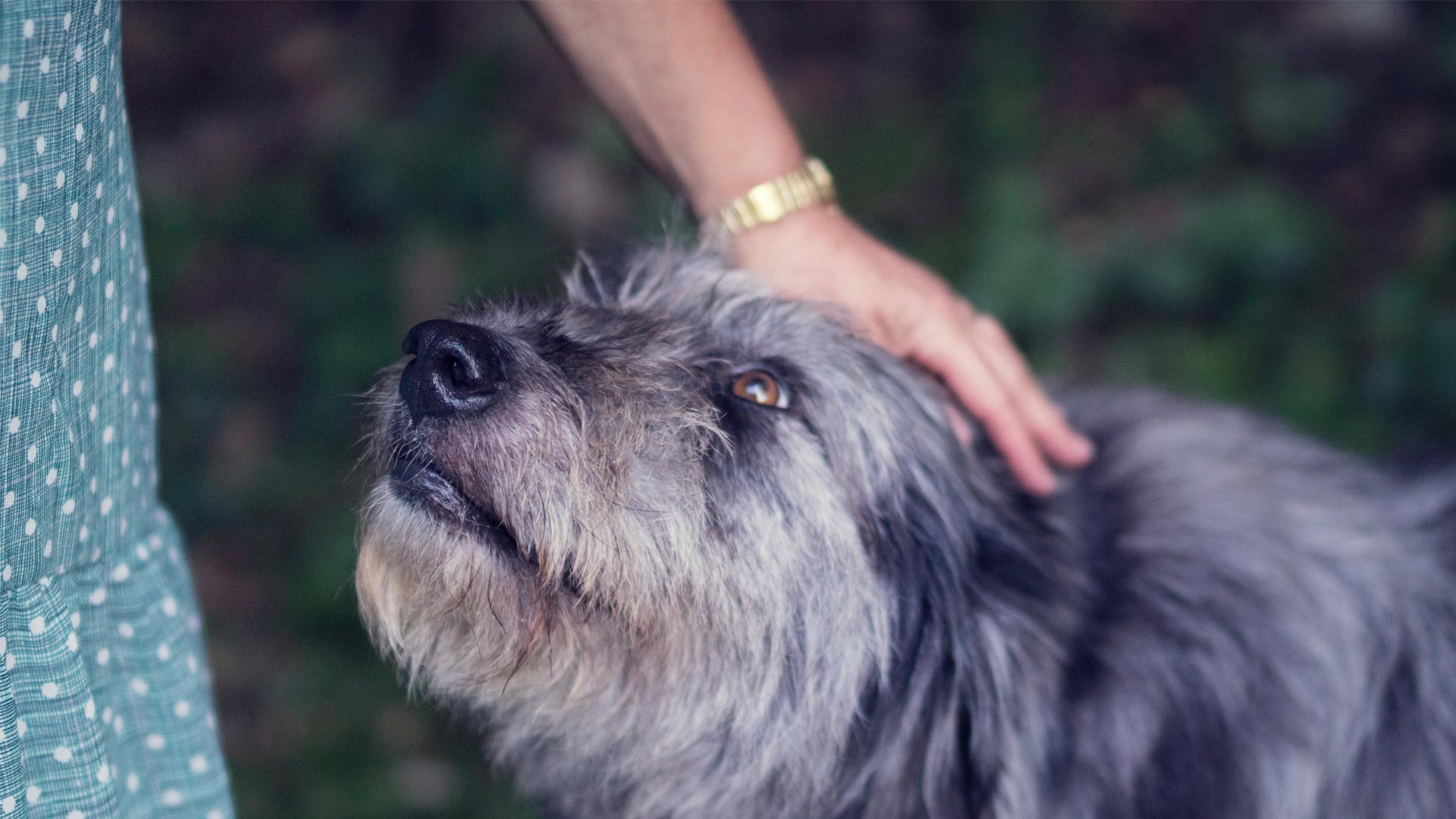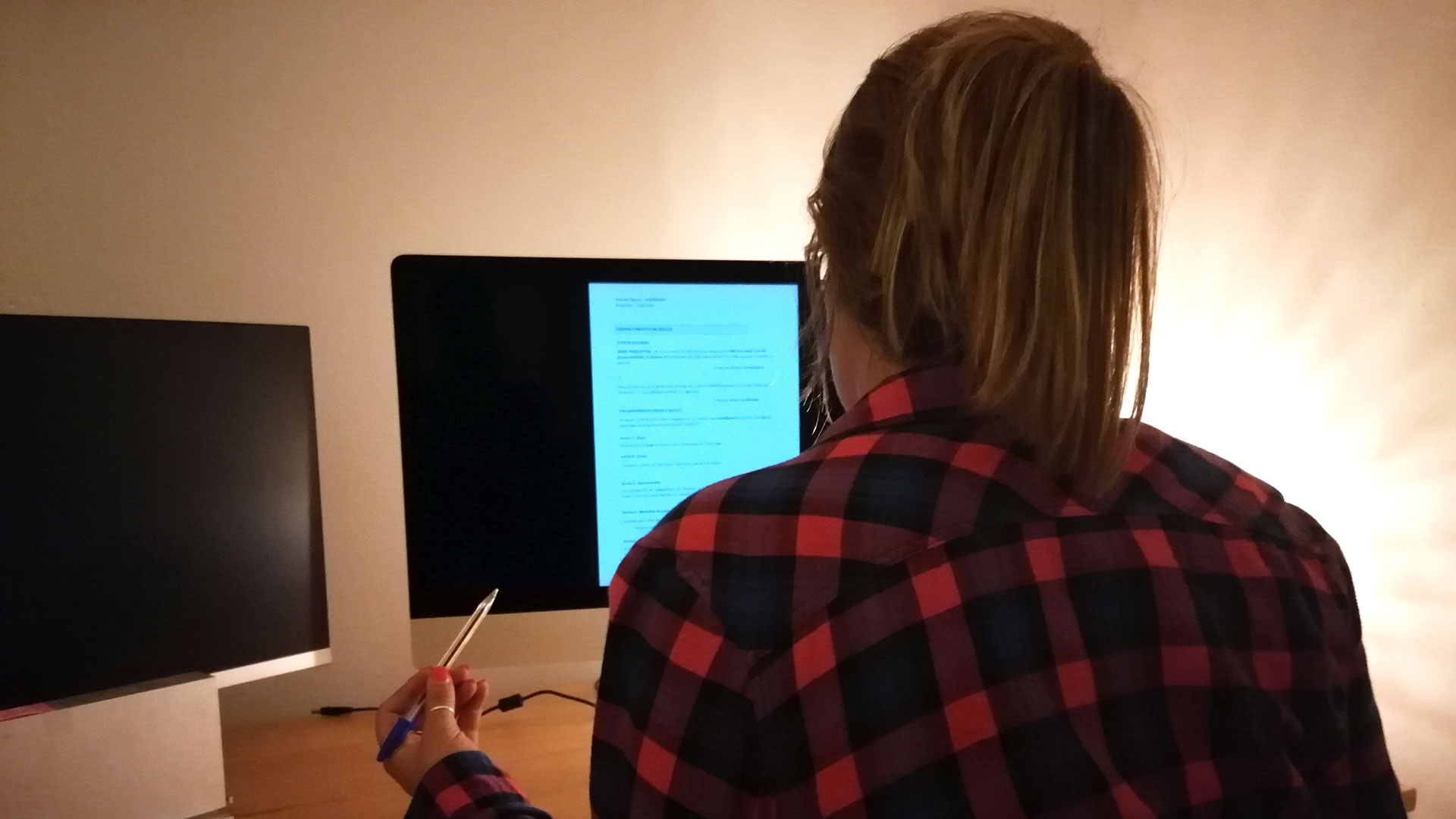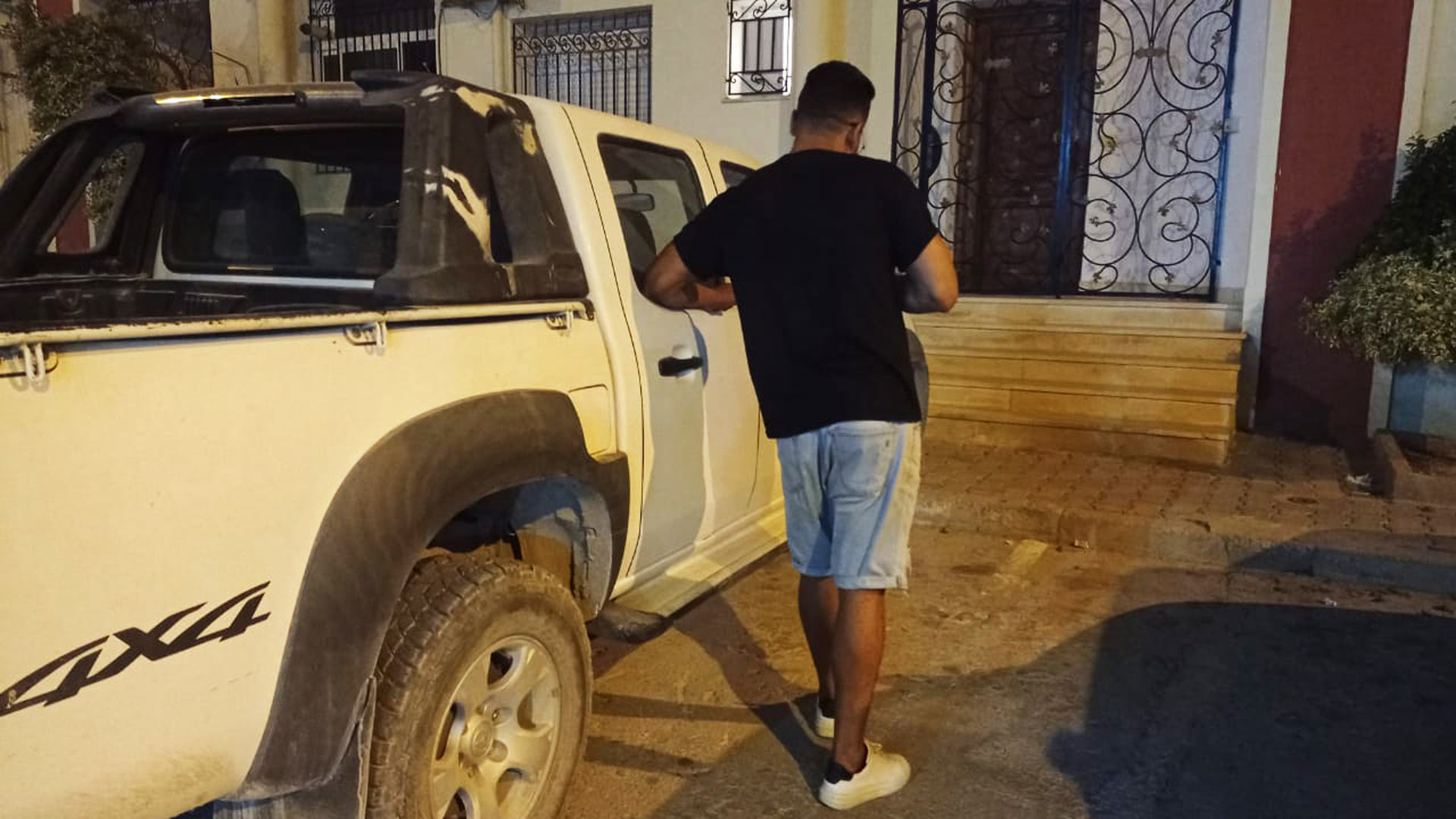Today, Neziha is excited. She’s treating herself to something extravagant: painting the walls of her studio. She would have liked a sort of ‘ greige’ color, but as she was unable to choose, she went with what the painter had left: a sky blue.
Neziha is 62 years old and decided to retire after working at a private religious school for many years. “ Working with children is great but exhausting, and at my age I think I have earned the right to rest!” she says.
Since she has only worked for 8 years, she cannot claim a state retirement pension, for which one must have worked for at least 10 years. Previously, she was unemployed and had occasional stray jobs that did not contribute to her pension. Now, she has to survive off of the 100 dt in pension (paid as alimony by her ex-husband), and the 200 dt sent by her brother from abroad.
During the last couple of years, Neziha's living conditions have changed a lot. She claims to have had a revelation while praying once, and decided to start wearing a niqab. This choice drastically reduced her opportunities for employment, and her family have attempted to convince her to remove it multiple times, but to no avail.
She got used to people staring at her on the street, but she still suffers from intimidation methods by the police, who have summoned her to the station several times for no apparent reason.
“ It was just to humiliate me, but it has had the opposite effect, it only strengthens my faith”, she says.
An overview of her monthly income and expenses:
Previously, her lifestyle was radically different. Neziha remembers how much she used to enjoy visiting her friends in the Sahel. She would sometimes take her car and leave for the weekend. She used to treat herself and spend hundreds of dinars on gas, gifts, and coffees. Now however, she is unemployed and spends most of her time at home. She only spends money on the basics: food, clothes, bills, phone, and health care when needed. " This crisis has come at the right time anyhow. We can no longer move, and I can’t afford to go out anymore", she concludes.
She spends about 250 dt on groceries each month, mainly on food and some cleaning and beauty products that she rarely even uses. Sometimes her friends or sister give her a bottle of perfume, body lotion or shampoo. Thrifty as she is, she manages to keep it for months.
When it comes to bills, Neziha manages to limit her water consumption thanks to a method she devised on her own. To wash the dishes, she runs cold water in a bucket while waiting for the hot water to get ready. The cold water collected is later used to drain the toilet, so she never has to use the flush. For her ablutions, she uses a cup and never lets the tap run. With this method, her water bill does not exceed 20 dt per quarter. “ I'm really good at saving water, but not electricity”, she admits.
To keep herself warm during winter she uses a small electric heater, and during summer she occasionally turns the air conditioner on. Her bills vary depending on the season, but remain at around 100 dt mark per quarter. On her phone, she spends about 20 dt on calls and 30 dt on data.
Neziha knows she has no choice but to save money to keep her head above water. Last year, she cut back on her food shopping so much that she plummeted in weight, to the point of no longer having the strength to fast for Ramadan. Since then, she decided to stop scrimping on fruits and vegetables, in order to stay healthy. However, she avoids buying other types of food like dried fruit, at least until further notice.
For clothes, Neziha goes to second-hand shops in search of fabrics to sew her dresses and niqabs, and spends around 15 dt per month. She carefully monitors her expenses, with one exception: " Socks have to be of good quality, so they cost more because I really hate having holes!"
A detailed overview of her monthly income and expenses:
Grey Area
After quitting her job, Neziha hoped to be able to continue teaching at home, but given the current general crisis, this is difficult to implement. In order to meet her basic needs she had to sell her car for 3500 dt, almost half of its purchase price. For Neziha, this car symbolised independence and comfort.
In the past, she often took the bus or the metro, but found it “ hellish and impossible”. “ The timetables are hardly ever respected, people are crammed in together, and the buses are in terrible condition”, she says. For a while she opted for taxis instead, but it was way too expensive to sustain, and often she found them to be just as unpleasant as other means of transport: “ either they blast the music too loudly, or they smoke”.
It was for all these reasons combined that she decided to invest in a car through borrowing money from friends. “ A friend just asked me what I needed one day. I could’ve never imagined it but she just lent me 2000 dinars, then I told another friend who also lent me 2000 dinars, and I was able to buy myself a car!”
By selling again, Neziha was able to save some money for the upcoming months and decided it was time to take care of her teeth. Her first big expense was therefore a consultation with the dentist, followed by a dental implant.
“ I have needed to take care of my teeth for a long time, I don't want to be toothless at 70! But it was never a possibility for me.”
Neziha knows that she will not have any savings in a few months. She only has 800 dinars left from selling her car, and hopes that her family will be able to step in, but the situation is difficult for everyone. “ I live day to day, God is by my side, he will help me”, she says hopefully.
Despite financial difficulties and the uncertain future, Neziha says she has psychologically felt better since she stopped working. She does not have to face the everyday struggles, and she finally has the time to devote herself to reading. Even the Covid-19 crisis does not seem to affect her mood, quite the contrary.
Laughingly, she admits to feeling less singled out lately: “ The whole world is wearing a mask now, no one stares at me on the street anymore.”
Future
Following her divorce, Neziha shunned the idea of remarrying, but has been considering the idea for some time now. She vowed not to marry again and fully devote herself to a religious life, but had a sudden change of heart during confinement. " I realized that I was wrong, that a life alone is not really a life."
She admits that her independence has reached its limit, and that living with someone could make her life easier - but not at any cost. Neziha is looking for a pious, non-smoking husband with a stable economic situation. The criteria are clear, he has to accept her way of life, her niqab, be in good health, and have modest but sufficient financial means to sustain their life together.






